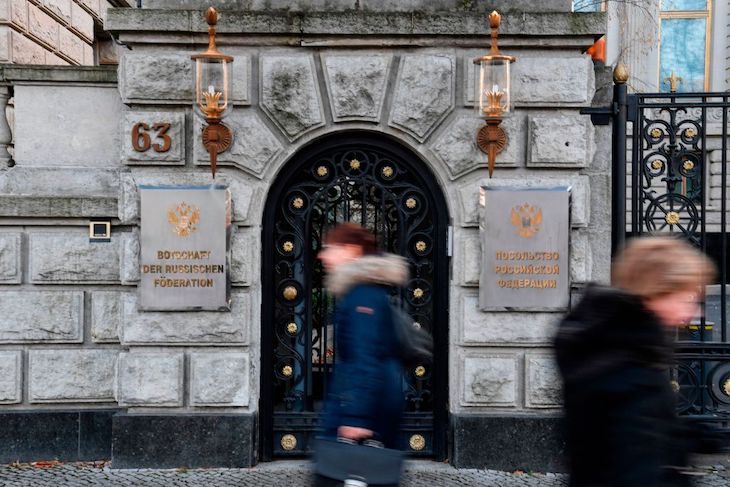Over the past few months, numerous reports have highlighted the United Kingdom’s unpreparedness for war. Issues such as the British Army’s struggle to attract new recruits, declining military spending over decades of peace, and dysfunction within crucial strategic military assets have been recurrent concerns. As the threat of the war shifting from Eastern Europe towards the UK exponentially grew, these warnings have frequently dominated headlines.
However, amidst these concerns, another critical aspect of UK security has largely escaped public attention: the state of the UK’s intelligence sector and its capability to conduct successful covert operations aimed at uncovering and disrupting enemy plans, particularly in the era of hybrid warfare.
Russia has learnt to capitalise on divisions in Western societies
The spike in Russian espionage across Europe has reached unprecedented levels, facilitated by the emergence of new technology and the ability to swiftly and discreetly interfere. Just this week, the Swedish Navy accused Russian tanker fleet of engaging in espionage activities while carrying petrol across the Baltic Sea.
In Germany, which has provided vast aid resources for Ukraine, reports have emerged of arrests of suspected Russian agents seeking to sabotage US military bases. Recent incidents, such as Germany’s blunder which allowed Russia access to a top-secret conference call that discussed Germany’s and its allies’ military tactics, highlight the real and immediate threat posed by foreign espionage.
The UK has also experienced its share of Russian espionage, evident in past poisonings and assassination attempts. These incidents may only represent a fraction of the potential threats posed by hostile actors today. A recent report from the think tank RUSI confirms Russia’s efforts to rebuild its covert capabilities with a clear intent to gain advantage in its geopolitical competition with the West. While Russian operations often exhibit flaws, their persistence and ability to learn from their mistakes pose a significant threat.
The question remains whether the UK is adequately prepared to counter covert campaigns from Russia or China, with reports of Chinese infiltration reaching parliamentary and governmental levels. Experts from the Alan Turing Institute suggest that the UK intelligence sector is outdated, often competes with open-source intelligence and private actors and is facing an existential challenge.
To address these challenges, the UK must prioritise agility in adopting innovative solutions to combat rapidly evolving technologies and hybrid warfare techniques. As with many international organisations, the UK security apparatus was built with consideration of threats and challenges of the past century.
Intelligence sharing with frontline partners can play a crucial role in identifying emerging threats and understanding adversaries’ strategies. The UK is part of the Five Eyes intelligence alliance established during World War II. While intelligence arrangements have expanded to include countries such as Germany, Norway, Japan, South Korea and Israel, the current global challenges demand a deepening of these ties. Including Ukraine in a special intelligence sharing agreement with the Five Eyes could be a significant step forward. Ukraine serves not only as a battleground where adversaries deploy their latest warfare tools but also as a testing ground for collaborative responses. Leveraging Ukraine’s war theatre could provide invaluable insights and enhance the effectiveness of collective counterintelligence efforts by the West.
Ensuring societal resilience and combating disinformation are also vital components of any UK security strategy. Russia has learnt to capitalise on divisions in Western societies, weaponising these to influence the domestic political agenda. During a year of crucial elections in the UK and US, the importance of social cohesion and resilience is hard to underestimate.






Comments